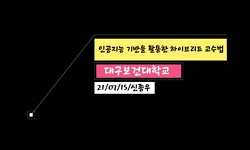In this study I examine the escalating expression of hatred directed towards the elderly, who were structurally the most vulnerable during the COVID-19 pandemic. I aim to uncover the under lying mechanisms driving this phenomenon. Utilizing a mixed me...
http://chineseinput.net/에서 pinyin(병음)방식으로 중국어를 변환할 수 있습니다.
변환된 중국어를 복사하여 사용하시면 됩니다.
- 中文 을 입력하시려면 zhongwen을 입력하시고 space를누르시면됩니다.
- 北京 을 입력하시려면 beijing을 입력하시고 space를 누르시면 됩니다.

코로나19 확산 시기 노인 멀티플의 존재 양태와 노인 혐오 정동의 분출 메커니즘 = The Ontological Existence of the Elderly-Multiple and the Mechanism of Venting Elderly Hatred during the Spread of COVID-19
한글로보기https://www.riss.kr/link?id=A109038516
- 저자
- 발행기관
- 학술지명
- 권호사항
-
발행연도
2024
-
작성언어
-
-
주제어
코로나19 ; 노인 멀티플 ; 혐오 정동 ; 아집 ; 팬데믹 ; 대구 ; 8.15 광화문 집회 ; 혼합방법론 ; Covid-19 ; Elderly-Mulitple ; Hatred Affect ; Eigensinn ; Pandemic ; Daegu ; August 15 Anti-government Rally at Gwanghwamun Square ; Mixed Methodology
-
KDC
300
-
등재정보
KCI등재
-
자료형태
학술저널
-
수록면
185-254(70쪽)
- 제공처
-
0
상세조회 -
0
다운로드
부가정보
다국어 초록 (Multilingual Abstract)
In this study I examine the escalating expression of hatred directed towards the elderly, who were structurally the most vulnerable during the COVID-19 pandemic. I aim to uncover the under lying mechanisms driving this phenomenon. Utilizing a mixed methodology, I analyze interactions across various spaces such as demographic discourse, cyberspace, and the physical world, to elucidate the structural factors leading to the elderly becoming targets of hatred. I explore the different ontological existences of what I refer to as the elderlymultitude, and the nature of their connection to the forces and intensities of hatred that ultimately result in discriminatory and hateful enactments towards them. Additionally, this study investigates the affective lineage of the eigensinn(stubbornness) of the elderly who upheld their support for the August 15 anti-government rally at Gwanghwamun Square, an event which catalyzed the emergence of anti-elderly sentiment during the COVID-19 pandemic in South Korean society. Through this analysis, I identify how the perception and reaction of the elderly to the proliferation of hatred towards them serves as a mechanism that intensifies their affective alienation. In this study, ethnographic work that explores the ontological existence of elderly-multiple from various perspectives by comprehensively analyzing various types of data can serve as a practice that generates languages and places capable of encapsulating the multifaceted, three-dimensional life experiences of old age. In this regard, anthropological ethnographic work can contribute to theoretical understanding and practical responses to the issue of elder hatred.
동일학술지(권/호) 다른 논문
-
죽어가는 이를 돌보는 실천은 무엇을 향하나: 생애 말기의 관계-생성적 돌봄
- 한국문화인류학회
- 강지연 ( Kang Jiyeon )
- 2024
- KCI등재
-
청계천의 해적과 해커: 무전기 해체와 라디오 조립을 통한 저변의 전자 기술 현대화
- 한국문화인류학회
- 조동원 ( Jo Dongwon )
- 2024
- KCI등재
-
가짜 유학생 담론과 한국 대학 학위의 가치: 몽골 출신 유학생의 졸업 후 삶을 통해 본 한국 유학 산업의 딜레마
- 한국문화인류학회
- 김도혜 ( Kim Dohye )
- 2024
- KCI등재
-
- 한국문화인류학회
- 오영훈 ( Oh Young Hoon )
- 2024
- KCI등재




 KISS
KISS






